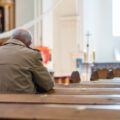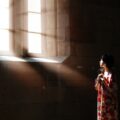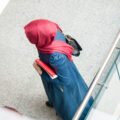Data from the dashboard shows inequality across Europe
Data from the dashboard shows inequality across Europe
Inequality is still very much present in Europe today, although steps are being taken to close the gaps. How do religious leaders and institutions contribute?
The EARS dashboard is a collection of summaries from European media articles on religion and society. In the past years, over 10,000 summaries were added. Our international team of analysts keeps the dashboard up-to-date with hundreds of new summaries each month.
Between January 1st and October 1st, 2021, 187 summaries about the topic of inequality were added to the dashboard. This is equal to 6% of the total number of summaries added to the dashboard during that period.

From these summaries, we can see how inequality is still very much present in Europe today, although steps are being taken to close the gaps. In this article, we will focus on gender and economic inequality and their relationship to religion.
Gender inequality across Europe
A key issue relating to gender inequality found on the dashboard is the topic of inclusivity. Many religious leaders and institutions are taking steps to reduce gender inequality. For example, an archdiocese in Ireland has published a new pastoral plan which emphasises the inclusion of women in leadership roles.[1] Similarly, the German Catholic Women’s League is demanding equal participation and voting rights for women in the episcopal synod in Rome. The League is aiming at equal treatment of all believers, regardless of their gender, due to the religious belief in the equal dignity of all baptised people.[2]
Pope Francis has also recently addressed the issue of equal rights and chances for women. He stressed the equality of all people before God and lamented the current situation for women because there is still an “enslavement” of females.[3] Likewise, French theologian Nathalie Becquart welcomes the change in attitudes towards the role of women in both society and the Church. She states that women need to be represented in decision making in the Church, and that all are created equal in the eyes of God.[4]
However, this focus on reducing gender inequality is not found everywhere. Research has found that many female ministers in the Netherlands experience sexism in the workplace. Almost 75% of respondents feel like they are treated differently by church members, and 60% claim they experience the most sexism at the hands of their male colleagues. About 5% of the female ministers are considering resigning because of this.[5] In addition, a survey of 29 of the biggest mosques in the UK has revealed that more than 1 in 5 of these places were not allowing women in to pray during the month of Ramadan. Five of the mosques contacted do not have a women’s area and six responded to say they ‘cannot accommodate women because of COVID health and safety reasons’.[6]
Finally, Pope Francis passed a resolution allowing women to formally read prayers, serve at the altar, and receive communion during religious services. This was seen as another step forward in equal women’s rights in the Roman Catholic Church. However, the Church only allows men to be priests and women are traditionally only on the margins of the Vatican administration.[7]
Economic inequality across Europe
Besides efforts to decrease gender inequality, religious institutions are also addressing economic inequality across Europe. For instance, the world’s most prominent Christian leaders have come together to persuade people to urgently address the climate crisis. According to Pope Francis, the Archbishop of Canterbury, and the Ecumenical Patriarch Bartholomew, climate change causes the most damage to the poorest people on earth, despite them being least responsible.[8]
Pope Francis has also called for a post-pandemic recovery plan to follow a new socio-economic model to overcome inequality. Mario Draghi, the Italian prime minister, seems to have understood the message and spoke of a growth that respects the environment and does not humiliate the human person. This includes, for example, greater fairness in taxation.[9]
Research has indicated that membership in religious communities can improve mental health when living in poverty. The researchers found that poor mental health linked to poverty was significantly less among religious people than among non-religious people. It is unclear yet why religious belief improves mental health. For example, it could be due to the social and community interactions religious belief entails, which are widely known to improve mental wellbeing.[10]
Battling inequality
Even though many religious leaders and institutions are taking steps to battle both gender and economic inequality, full equality across Europe has not yet been achieved. Nevertheless, efforts such as the inclusion of women in leadership roles and representation in decision making are steps in the right direction. As for economic inequality, religious leaders such as Pope Francis are calling for new and fair systems to provide help to the world’s poorest.
Learn more
The EARS dashboard allows you to gain insight into a large number of topics, including gender and economic inequality. It is a free tool that enables you to make similar connections as described above, and to find out about new relationships between interesting subjects across Europe. Please visit the dashboard to learn more.
Sources
[1] Archbishop calls for ‘new era of inclusivity’ in Catholic Church
[2] Deutschland: Mitsprache von Frauen bei Bischofssynode gefordert
[3] Generalaudienz: Papst beklagt „Versklavung“ von Frauen
[4] Teologen Becquart: Kyrkan måste lyssna på kvinnorna
[5] Seksisme tegen vrouwelijke dominees is aan de orde van de dag
[6] Mosques shut out women for Ramadan prayers
[7] Папата со декрет им овозможи поголема рамноправност на жените во Црквата
[8] Climate change: World’s Christian leaders release first joint statement demanding urgent action
[9] Vaticano, il messaggio post-pandemia di Papa Francesco chiama il governo Draghi a misurarsi su tre punti
[10] Religious belief really does seem to draw the sting of poverty






